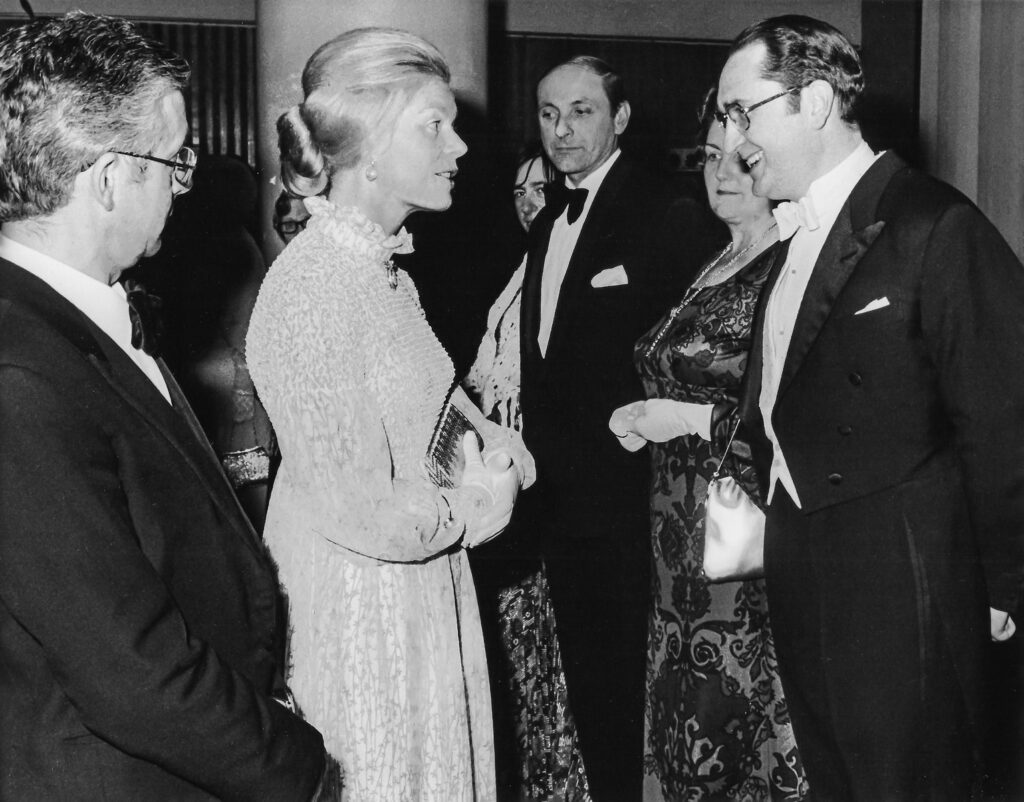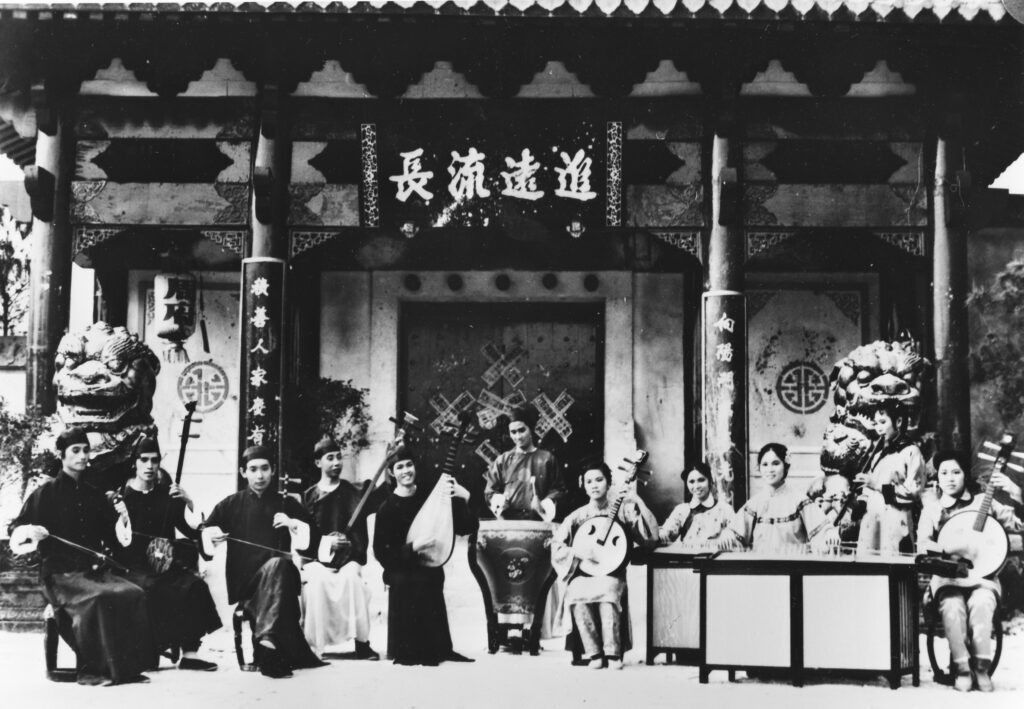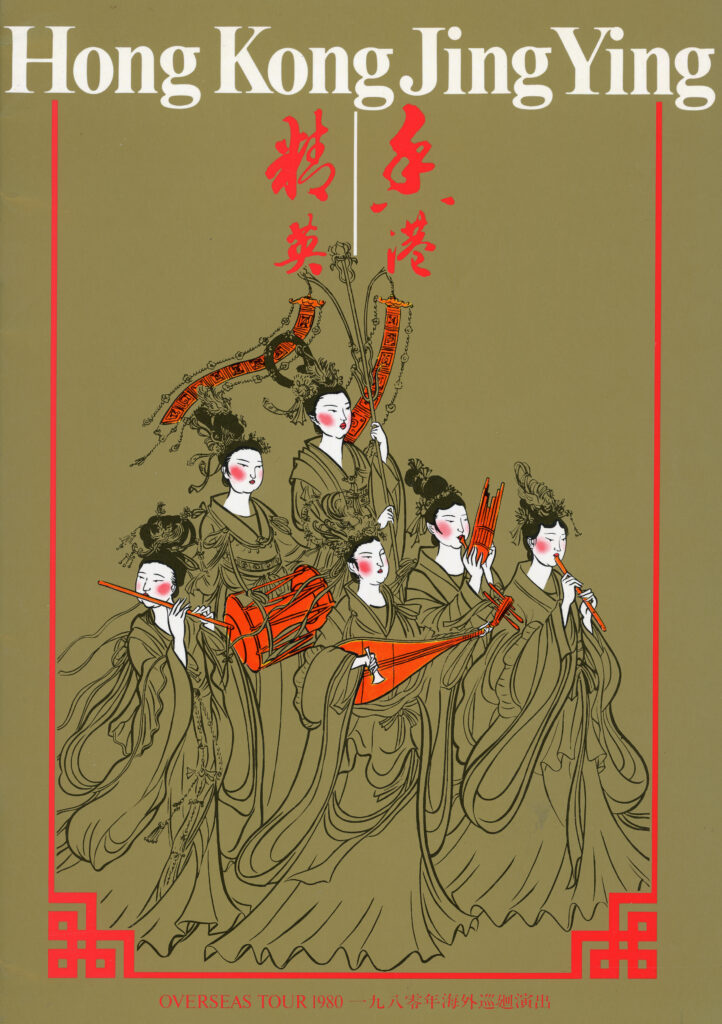David has worked with young musicians of all ages across the world – as conductor, mentor, teacher, examiner and adjudicator. Throughout his playing career, he gave masterclasses and for some years was examiner for the Associated Board of the Royal Schools of Music, festival adjudicator and a panel member for awards working with such colleagues as John Hosier CBE, Philip Jones CBE, Robert Easton, and Sir William Glock.
His particular gift of communication was seized on in 1974 when Ronald Smith, then County Music Advisor for Avon, invited him to become inaugural conductor of the orchestra that he was about to form: the County of Avon Schools Orchestra (CASO). David quickly brought the players to understand the value of high-level performance through discipline and their own desire to achieve. There were three residential courses a year during the school holidays, each with a week of systematic rehearsal, ending with performances. His approach was based on his experiences as a member of the National Youth Orchestra, under Dame Ruth Railton. The Orchestra toured to the Bermuda Festival October-November 1975); Singapore, Hong Kong and Manila (1978); and appeared in the BBC’s Youth Orchestras of the World series.

“My family and friends were thrilled and moved by your achievements with this young orchestra. … it is so reassuring for a parent to have someone prepared to take people beyond mediocrity, which is so readily acceptable today.”
One of many letters from parents after a performance by the Orchestra at Colston Hall, Bristol, 1978
“We now understand Mr Stone. He cares only about the music – and we want him to go on.”
Members of CASO players’ committee, oral communication during the inaugural trial course, 1975
Subsequently, as both administrator and coach, he assisted Pro Corda, the National School for Young Chamber Music Players, taking the senior members to collaborate with the School of Music, the University of South Carolina, in such works as the Bartok Divertimento.
But perhaps the most significant of his achievements in this field took place in Hong Kong. In 1976 David was invited by the Associated Board of the Royal Schools of Music to be one of the examiners for Hong Kong and Singapore and was also asked by the Hong Kong Government to prepare the report ‘Music in Hong Kong and Instrumental Music at School Level’ (submitted in 1977).
This led to his appointment as Music Consultant and then Artistic Advisor to the Government (1977). In Hong Kong, he spearheaded two major strategic developments, contributing to the general metamorphosis that was taking place in Hong Kong in the 1970s and 1980s under the informed initiative of the great Governor Sir Murray MacLehose and his team of top government executives – Kenneth Topley (then Secretary for Education), Sir David Acres-Jones, Sir Dennis Bray and Sir Jack Cater.
At David’s suggestion, a new government department was created: the former Recreation and Sports department was expanded to become the department for Recreation and Culture, initially under one Commissioner (Barrie Wiggham CBE) serving both Recreation and Culture. This new unit introduced a scheme for promoting Chinese and Western musical activity throughout the territory, offering free regular instrumental tuition through the establishment of music centres across the communities. The immediate take-up response was overwhelming, thanks to the Government’s efficient, fast and disciplined structures and procedures and the selfless enthusiasm and dedicated commitment of the administrative officers, including the first Music Administrator, Gordon Siu, followed by Elizabeth Wong, and others in Hong Kong such as The Hon. Alex Wu.
“Hong Kong revolution … one of the most remarkable phenomenons to occur recently … the birth and prodigious growth of a huge, government-organised system for teaching and performing music, both Chinese and Western.”
Classical Music, 30 June 1979
Everybody agrees that Sir Murray was a most remarkable man, far-sighted, sensitive, with an immense breadth of vision. David (and Hong Kong) owes him so much. Towards the end of his life, in retirement, asked during a TV interview what he considered his greatest achievement during his period as Governor of Hong Kong, after several moments of silent reflection, he replied: the development of the arts and culture. This was a major contribution, enthusing the spirit of the people of Hong Kong and changing the image of Hong Kong away from just money and manufacturing.

David also initiated local music festivals in Hong Kong and toured the 179 members of the Hong Kong Youth Symphony and Chinese Orchestras to Britain (13 towns and cities) and France (Paris), 1979. In the following year, a tour of the Hong Kong Jing Ying – outstanding Chinese dancers and instrumentalists, some playing Chinese instruments, some playing Classical Western instruments – was also undertaken to Cyprus (with performance events including the Gala opening associated with the Commonwealth Film and Television Festival) and Israel (in collaboration with the Jerusalem Music Centre, the Rubin Academy, and the Israel Summer Arts Festival). Tours of such groups continued to be made abroad.
“A great impact …. The range of achievement in the two orchestras was remarkable, and to the Westerner it looked as if a musical renaissance of great vigour must be taking place in Hongkong. … a comprehensive programme of musical education is now under way …”
Nicholas Kenyon, then music critic of the Financial Times and the New Yorker

In 1980, Hong Kong hosted the first ever Asian Youth Music Camp, with players from Indonesia, Thailand, and around the South China Seas. As Artistic Director, David conducted the final concert with Menuhin as soloist in the Beethoven Concerto, setting a scene for the future establishment of the Asian Youth Symphony Orchestra.
“Stone, Menuhin and the youth of Asia make it unique”
Hong Kong Star, 1979
“… you would never guess this was a Youth Orchestra performing … during their one week of rehearsal, they have achieved remarkable unanimity of approach … conductor David Stone is to be congratulated for the way in which he groomed these players …”
South China Morning Post, on the Asian Youth Music Camp, 1979
